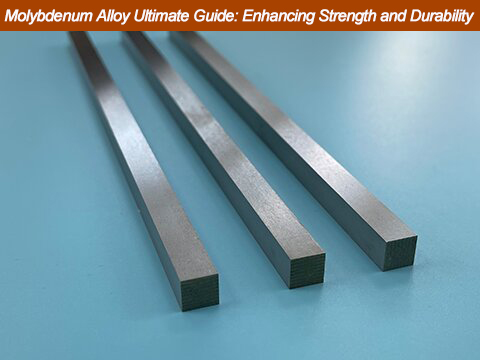
Want to boost the strength and durability of your materials? Molybdenum alloy is the answer. This guide will show you how molybdenum alloy can elevate your products with its remarkable properties.
Molybdenum alloy offers exceptional strength, resistance to deformation, and high-temperature stability. It's a versatile material used in aerospace, automotive, and construction for extreme conditions. This alloy significantly improves the performance and lifespan of products, from aircraft components to advanced machinery.
Explore the different types of molybdenum alloys and their unique characteristics. Discover how molybdenum alloy is used across various industries. Learn about the production processes and considerations for working with molybdenum alloy.
Whether you're an engineer, manufacturer, or curious individual, this guide will help you harness the power of molybdenum alloy. Let's dive in!
Properties and Characteristics of Molybdenum Alloy
Molybdenum alloy is a strong and durable material used in many industries.
Strength and Resistance
Molybdenum alloy is very strong and can handle a lot of pressure without changing shape. It's perfect for heavy-duty applications.
Heat Resistance
This alloy can endure very high temperatures without losing its properties. It's ideal for aerospace and automotive industries where extreme heat is common.
Corrosion Resistance
Molybdenum alloy doesn't rust or degrade easily. This makes it great for use in environments with harsh chemicals, like chemical processing plants.
Advantages of Using Molybdenum Alloy
Molybdenum alloy offers several key advantages:
Strength-to-Weight Ratio
Molybdenum alloy is very strong yet lightweight. This makes it ideal for aerospace and automotive applications, where reducing weight is crucial while maintaining strength. It's also great for industrial uses that need to support heavy loads without adding much weight.
Thermal Conductivity
Molybdenum alloy effectively transfers heat, making it perfect for high-heat environments like cutting tools and industrial equipment. Its thermal conductivity is also valuable in making heat sinks and other thermal management components for electronics and mechanical systems.
Wear Resistance
Molybdenum alloy resists abrasion and erosion, making it suitable for machinery and industrial equipment that undergo a lot of wear and tear. It's also an excellent choice for cutting tools and industrial tools that need to maintain a sharp edge.
Types of Molybdenum Alloy
Molybdenum alloys come in various types, each with unique properties and uses.
Molybdenum-Tungsten Alloy (Mo-W)
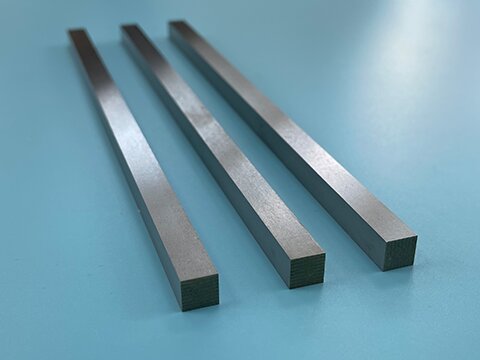
Molybdenum tungsten alloy combines the strength and heat resistance of molybdenum with the hardness of tungsten. It's ideal for cutting tools and high-performance machinery because it is very durable.
Molybdenum-Rhenium Alloy (Mo-Re)
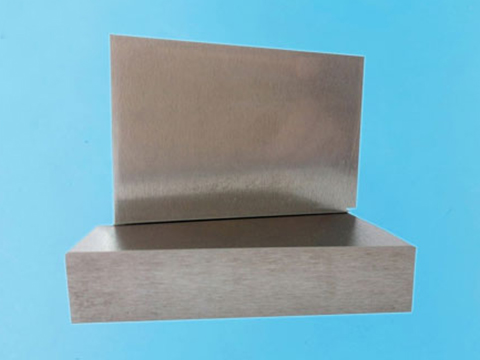
Known for its exceptional high-temperature strength and creep resistance, molybdenum rhenium alloy is ideal for rocket nozzles, turbine blades, and nuclear reactor components, where it withstands extreme heat and radiation.
Molybdenum-Copper Alloy (Mo-Cu)
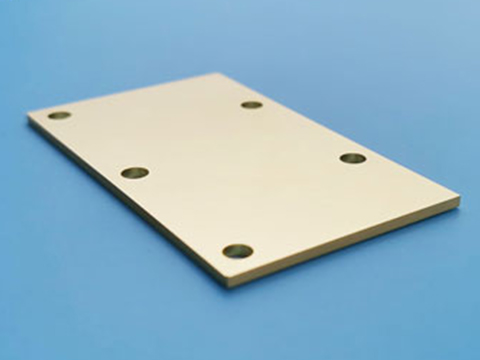
Molybdenum copper alloy has great thermal and electrical conductivity, making it suitable for electronic and electrical applications where efficient heat and electricity transfer are needed.
TZM Alloy (Titanium-Zirconium-Molybdenum)
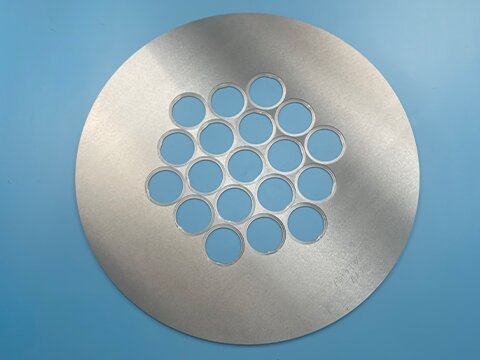
TZM alloy includes titanium and zirconium with molybdenum. It is known for its high-temperature strength and resistance to deformation, making it useful in aerospace, high-temperature furnaces, and extrusion dies.
Molybdenum-Hafnium Carbon (MHC) Alloy
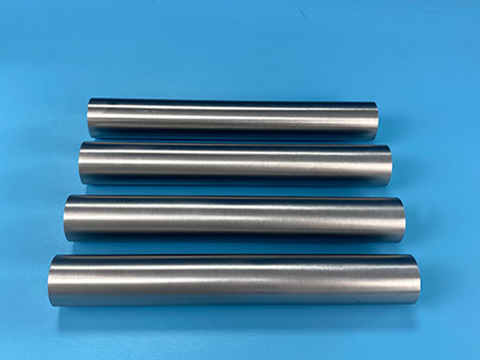
MHC alloy is designed to enhance performance in high-temperature environments. It combines molybdenum with hafnium and carbon to provide superior strength and thermal stability. This alloy is particularly useful in applications requiring high heat resistance, such as in aerospace and nuclear industries.
Each of these molybdenum alloys has specific benefits, making them useful for different industrial applications based on their unique properties.
Applications of Molybdenum Alloy
Molybdenum alloy is used in many industries due to its exceptional properties.
Aerospace
Molybdenum alloy's high strength-to-weight ratio and thermal stability make it perfect for aircraft components. It is used in engine parts, landing gear, and structural elements.
Automotive
In the automotive industry, molybdenum alloy is used for engine components, transmission parts, and other critical systems. Its ability to handle high temperatures and resist wear makes it valuable for high-performance vehicles.
Construction and Infrastructure
Molybdenum alloy's strength and corrosion resistance are ideal for structural components like beams and girders. It is also used in building bridges, buildings, and other large infrastructure projects.
Mining and Oil & Gas
The alloy's durability in harsh environments makes it suitable for specialized equipment in the mining and oil & gas industries.
Molybdenum alloy's versatile properties make it a crucial material in these demanding applications.
Molybdenum Alloy Comparison with Other Similar Alloys
Molybdenum Alloy vs. Tungsten Alloy
Molybdenum and tungsten alloys both perform well in high-temperature settings, but they have key differences. Molybdenum is lighter and has a better strength-to-weight ratio, making it ideal for weight-sensitive applications like aerospace. Tungsten, however, has a higher melting point and greater hardness, suited for extreme conditions but is heavier and more expensive than molybdenum.
Molybdenum Alloy vs. Stainless Steel
Molybdenum alloy is stronger and lighter than stainless steel, making it excellent for applications where weight is crucial, such as in aerospace and automotive industries. It also handles high temperatures and wear better than stainless steel. However, stainless steel excels in corrosion resistance, particularly in marine environments and chemical processing, and is generally more cost-effective.
Molybdenum Alloy vs. Titanium Alloy
Molybdenum and titanium alloys are both strong and lightweight, but each has its own strengths. Titanium is highly resistant to corrosion and is biocompatible, making it ideal for medical implants and environments with corrosive elements. Molybdenum, on the other hand, offers better thermal stability, maintaining its strength at higher temperatures. It is also often more cost-effective than titanium, which can be advantageous for large-scale applications.
Choosing the Right Alloy
Selecting the best alloy depends on your specific needs. Molybdenum is great for high-temperature and weight-sensitive applications. Tungsten is best for extreme conditions requiring high hardness, stainless steel is ideal for corrosion resistance, and titanium suits applications needing biocompatibility and corrosion resistance. Each alloy has unique advantages, so choose based on your project's requirements.
Conclusion
Molybdenum alloy has a bright future as it continues to meet the needs of various industries. Its strength and ability to handle high temperatures make it valuable in aerospace, automotive, and construction. With advances in technology, like hypersonic aircraft and fuel-efficient vehicles, molybdenum alloy is becoming even more essential.
It's also showing promise in new areas such as renewable energy and electronics. As industries look for more durable and efficient materials, molybdenum alloy stands out. If you're a manufacturer or industry professional interested in how molybdenum alloy can benefit your projects, contact us to find out how our solutions can help.
















